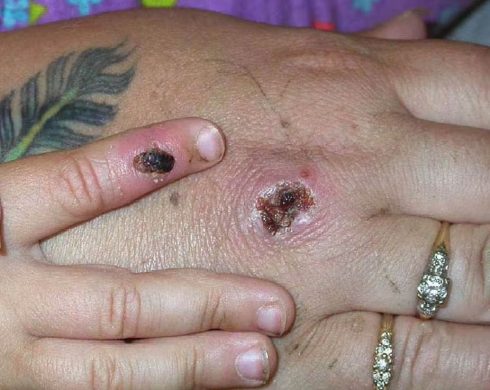THE current outbreak of mpox in Africa has been declared an international emergency by the World Health Organisation (WHO).
The WHO sounded the alarm today following a meeting to assess the situation on the continent.
Director General Dr Tedros Adhanom Ghebreyesus told a press conference that the surge in cases of the disease, previously known as monkeypox, constitutes ‘a public health emergency of international concern.’
Dr Tedos called for an internationally coordinated response to the virus, insisting it is ‘essential’ to stop the outbreaks.
It comes after neighbouring Spain was revealed to have the highest number of diagnosed cases in Europe last week, counting 16 new cases in the past month alone.
Dr Tedros added: “The detection and rapid spread of this new strain of mpox in eastern Democratic Republic of Congo, its detection in neighbouring countries that had not previously reported this disease, and the potential for further spread within Africa and beyond, are of great concern.”
The alarm is due to the “unprecedented” increase in cases in Africa, where a public health emergency has already been declared throughout the continent, due to a new strain “more serious” than the previous one, according to the WHO.
So far this year alone, 15,000 infections and 461 deaths have been recorded on the continent.
Spain has recorded the highest number of mpox cases in Europe since the start of the current outbreak in April 2022, figures revealed last week.
A total of 8,101 cases have been reported – almost double that of the second-placed country, France.
This year has seen 260 confirmed cases with nearly half in the Madrid area and 90% of those affected were unvaccinated.
Some 16 infections were reported between July 5 and August 5 by the Carlos III Institute.
Practically all of the cases (98%) are in males, aged between 6 and 68 years, although six out of ten were between 30 and 49 years old, bringing the average age to 37.
Three out of four presented general symptoms, such as fever (the most frequent), asthenia, sore throats, muscle pain or headache.
Rashes that developed were located in the anogenital area in 76.1% of cases.
In 213 of the 260 infections this year, 16.4% of people reported having had close contact with a probable or confirmed case.
The most likely form of transmission was sexual intercourse in 80% of mpox infections with the overwhelming number of cases involving gay or bi-sexual men.








